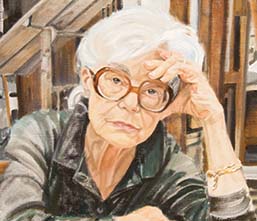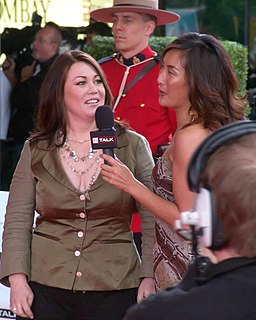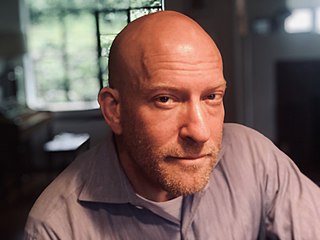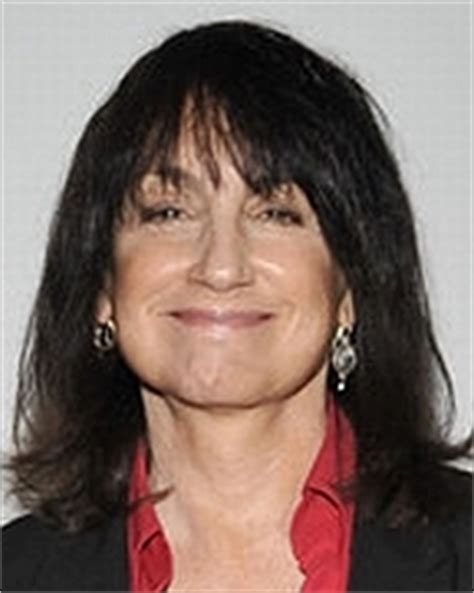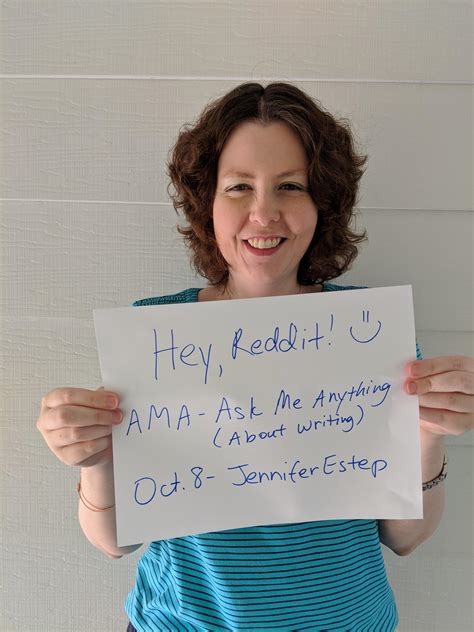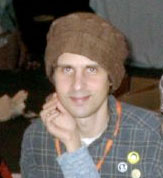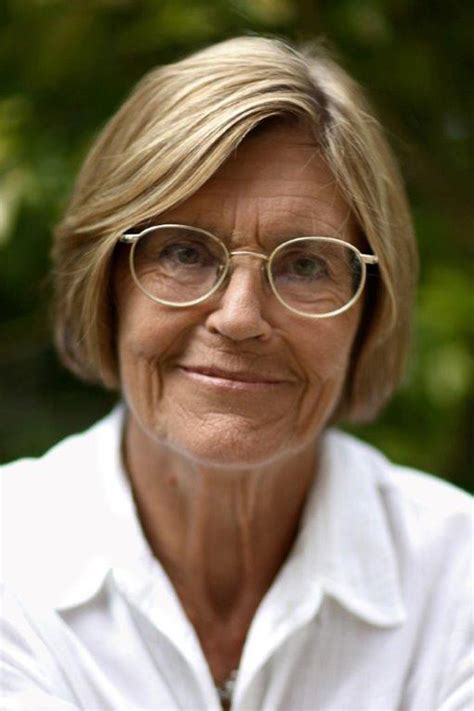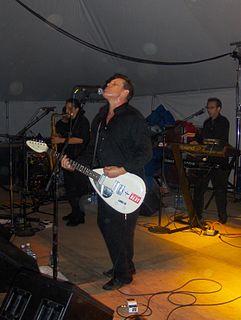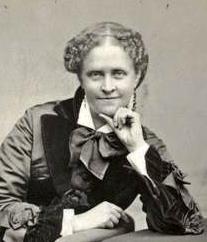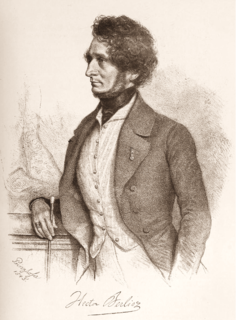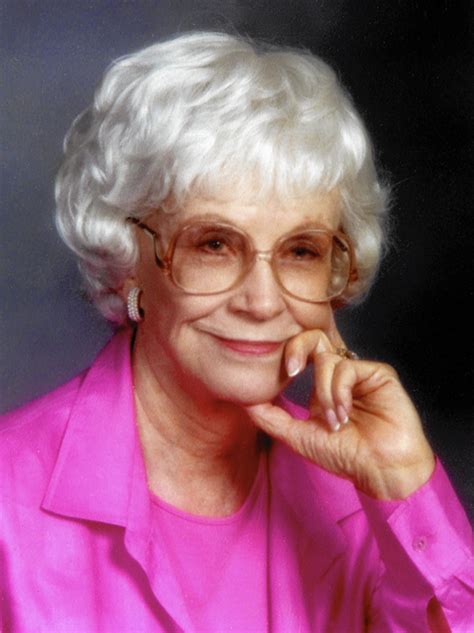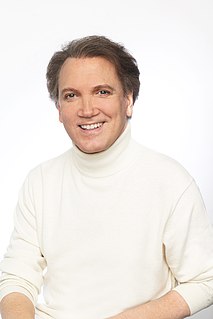Top 1200 Seemed Quotes & Sayings - Page 3
Explore popular Seemed quotes.
Last updated on April 15, 2025.
In any war story, but especially a true one, it's difficult to separate what happened from what seemed to happen. What seems to happen becomes its own happening and has to be told that way. The angles of vision are skewed. When a booby trap explodes, you close your eyes and duck and float outside yourself. .. The pictures get jumbled, you tend to miss a lot. And then afterward, when you go to tell about it, there is always that surreal seemingness, which makes the story seem untrue, but which in fact represents the hard and exact truth as it seemed.
I used to think I should like to be a bookbinder or bookseller it seemed to me a most delightful trade and I wished or thought of nothing better. More lately I thought I should be a minister, it seemed so serious and useful a profession, and I entered but little into the merits of religion and the duties of a minister. Every one dissuaded me from the notion, and before I arrived at any age to require a real decision, science had claimed me.
She poured out Swann's tea, inquired "Lemon or cream?" and, on his answering "Cream, please," said to him with a laugh: "A cloud!" And as he pronounced it excellent, "You see, I know just how you like it." This tea had indeed seemed to Swann, just as it seemed to her; something precious, and love has such a need to find some justification for itself, some guarantee of duration, in pleasures which without it would have no existence and must cease with its passing.
What I learned about them, I liked. But it also seemed that the liberal line was not entirely correct, for it was obvious that racial differences went far beyond skin color. It would be difficult to categorize all the distinctions I noticed. In fact, I made no effort to catalogue them at the time, but their differences ranged all the way from physical characteristics to more subtle differences such as extreme aversion for work in cold weather. On cold days, when I felt invigorated, my black co-workers seemed lethargic.
I never had the idea of moving to Paris and becoming something. I liked the idea of living in Paris because it seemed to have so many parts of life I really enjoyed. The people there seemed to prize literature and art, food and drinking, a more hedonistic way of living. My ambition was to be cosmopolitan. I grew up in the suburbs. I went to college in Maine. I had a dream in my head that if you wanted to be the most urbane, living-life-to-the-fullest kind of person, Paris was the place to be.
The day my father died seemed longer than my entire childhood. The day I felt my first success seemed fleeting, hour-long, not long enough perhaps. I wondered where it went. Even the cycle of time confounds me. I work till dark, until sunrise on most days and fall asleep as the world awakens to light. My friends call me an owl. I like to think of myself as Batman – the prince of darkness.
It seemed clear to me that life and the world somehow depended upon me now. I may almost say that the world now seemed created for me alone: if I shot myself the world would cease to be at least for me. I say nothing of its being likely that nothing will exist for anyone when I am gone, and that as soon as my consciousness is extinguished the whole world will vanish too and become void like a phantom , as a mere appurtenance of my consciousness, for possibly all this world and all these people are only me myself.
The clean clear colours were in my head. But one day as I looked at the brown burned wood of the Shanty, I thought 'I can paint one of those dismal-coloured paintings like the men. I think just for fun I will try - all low-toned and dreary with the tree besides the door.' In my next show, 'The Shanty' went up. The men seemed to approve of it. They seemed to think that maybe I was beginning to paint. That was my only low-toned dismal-coloured painting.
I used to teach on a college level, and I've taught in schools where kids just wanted to be artists, and I used to be furious with them if they didn't read, because they just seemed so - their education seemed so thin if all they could do was pick up a paint-loaded brush and fling it at a canvas. I mean, there was nothing to express there, except maybe their own personal feelings. But if they're not - if they don't have a grounding in the way these things have been expressed by other people down through the centuries, then they're lost.
There are a lot of war memorials around the UK. It's usually a part of the war memorials. I loved the way The Glorious Dead sounded. It's kind of a strange thing to say. There's nothing particularly glorious about being dead. It sounded like a strange, horror film. It just grew from there, really. It seemed quite apt for the record. We're kind of obsessed with zombie movies and horror films. It seemed like it just fit, at the time.
And there was, in those Ipswich years, for me at least, a raw educational component; though I used to score well in academic tests, I seemed to know very little of how the world worked and was truly grateful for instruction, whether it was how to stroke a backhand, mix a martini, use a wallpaper steamer, or do the Twist. My wife, too, seemed willing to learn. Old as we must have looked to our children, we were still taking lessons, in how to be grown-up.
The place resembled a new model prison, or one that had achieved a provisional utopia after principled revolt, or maybe a homeless shelter for people with liberal arts degrees. The cages brought to mind those labs with their death-fuming vents near my college studio. These kids were part of some great experiment. It was maybe the same one in which I'd once been a subject. Unlike me, though, or the guinea pigs and hares, they were happy, or seemed happy, or were blogging about how they seemed happy.
I have never looked upon ease and happiness as ends in themselves - this critical basis I call the ideal of a pigsty. The ideals that have lighted my way, and time after time have given me new courage to face life cheerfully, have been Kindness, Beauty, and Truth. Without the sense of kinship with men of like mind, without the occupation with the objective world, the eternally unattainable in the field of art and scientific endeavors, life would have seemed empty to me. The trite objects of human efforts - possessions, outward success, luxury - have always seemed to me contemptible.
In moments of spiritual crisis we naturally fall back upon what worked for us, or seemed to work, heretofore. Sometimes this shows up through the reassertion of our old values in belligerent, testy ways. Regression of any kind is just such a return to old presumptions, often after they have been shown to be insufficient for the complexity of larger questions. The virtue of the old presumptions is that they once worked, or seemed to work, and therein lies if not certainty, then nostalgia for a previous, presumptive security. In our private lives, we frequently fall back upon our old roles.
And so we stood together like that, at the top of that field for what seemed like ages, not saying anything, just holding each other, while the wind kept blowing and blowing at us, tugging our clothes, and for a moment, it seemed like we were holding onto each other because that was the only way to stop us from being swept away into the night.
Housing in New York seemed to fit Norman Lear. In addition, his shows confronted all kinds of social issues - racial separation and prejudice being foremost among them. The Evans of Good Times were the first black family to be the focus of a primetime American TV show. A lot of the people we came across in filming were familiar with the role Norman played in catalyzing important national conversations about race. They seemed grateful to him for trying to move the needle.
It was a narrow world, a world that was standing still. But the narrower it became, the more it betook of stillness, the more this world that enveloped me seemed to overflow with things and people that could only be called strange. They had been there all the while, it seemed, waiting in the shadows for me to stop moving. And every time the wind-up bird came to my yard to wind its spring, the world descendedmore deeply into chaos.
Then after a long time Annie wasn’t a little girl anymore. She was a big girl and I was so much in love with her that I lived in a dream. In the dream my heart seemed to be ready to burst, for it seemed that the whole world was inside it swelling to get out and be the world. But that summer came to an end. Time passed and nothing happened that we had felt so certain at one time would happen.
Hunt seemed similarly indifferent to the show, his head inclined toward hers, his gaze locked on her face. Though his breathing remained soft and disciplined, it seemed to her that its rhythm had changed ever so slightly. Annabelle moistened her dry lips. “You …you mustn’t stare at me like that.” Soft as the murmur was, he caught it. “With you here, nothing else is worth looking at.
More than any other personality trait, my mother seemed to be ruled by anger and sadness. She seemed to hate being a mother. Watching her unhappiness as I grew up made me conclude that the answer was to try and be as unemotional as I could, which many therapists have taught me is a bad idea. It also made me want to avoid marriage and having children.
Americans like warm characters. It's why, no matter what he did in the early days, they kind of resonated to Bill Clinton because he seems like a guy that you could sit down and have a burger and a beer with. It's even why, despite the fact that he sometimes seemed to be not firing on all cylinders, lots of them still like George W. Bush - because he seemed like the kind of guy you could have a burger and a beer with.
Even as a child, she had preferred night to day, had enjoyed sitting out in the yard after sunset, under the star-speckled sky listening to frogs and crickets. Darkness soothed. It softened the sharp edges of the world, toned down the too-harsh colors. With the coming of twilight, the sky seemed to recede; the universe expanded. The night was bigger than the day, and in its realm, life seemed to have more possibilities.
Paleontologists had long been aware of a seeming contradiction between Darwin's postulate of gradualism, confirmed by the work of population genetics, and the actual findings of paleontology. Following phyletic lines through time seemed to reveal only minimal gradual changes but no clear evidence for any change of a species into a different genus or for the gradual origin of an evolutionary novelty. Anything truly novel always seemed to appear quite abruptly in the fossil record.
The late '90s were a really bad time for people trying to be rock stars, you know what I mean? It seemed like everyone was a one-hit wonder on the radio. We had friends who had a hit single on the radio and sold 500,000 records, and then they couldn't get arrested a year later. I had this feeling at the time that that was not possible anymore, so the idea of becoming the biggest band in the country—it seemed laughable. I felt that having those sort of ambitions was foolish, because there was no way that was going to be possible. If you saw it that way, you were just deluding yourself.
I stood looking down out of the window. The street seemed miles down. Suddenly I felt as if I'd flung myself out of the window. I could see myself lying on the pavement. Then I seemed to be standing by the body on the pavement. I was two people. Blood and brains were scattered everywhere. I knelt down and began licking up the blood and brains
The panther prowled around me in a loose, wide circle. Its mouth turned down, almost in a pout, and it seemed disappointed that I wasn't going to run away. Or scream, at the very least. Its tail, which was at least three feet long, twitched back and forth in what seemed to be annoyance. Or maybe anticipation. I didn't know. I'd always been more of a dog person. I cleared my throat, and the panther stopped and flicked up one of its rounded ears. Listening. "Um, nice kitty?
James often wondered at the chain of flukes it must have taken to bring him through with his own life and limbs intact. Once he might have believed it to be the work of Providence but it seemed to him now that to thank God for his life would be to suggest God had shrugged off all the others flicked them away like cigarette butts by the thousands and that seemed like abominable conceit. James Dorsey took no credit for being alive. His higher power these days was Chance.
The ideals which have lighted my way, and time after time have given me new courage to face life cheerfully, have been Kindness, Beauty, and Truth. Without the sense of kinship with men of like mind, without the occupation with the objective world, the eternally unattainable in the field of art and scientific endeavors, life would have seemed to the empty. The trite objects of human efforts — possessions, outward success, luxury—have always seemed to me contemptible.
To evoke the classic period of Italian cinema in a little film seemed like a great, fun thing to do. I had relations to that period. I had known Fellini and I had known Antonioni. I had made a movie with Antonioni and I had visited Fellini in his studios. So, it seemed like something worthwhile doing. You bring yourself to that mythical cinema.
The whole point was just to be yourself, no matter what that was. You didn't have to fit into a certain punk-rock cliché. Create whatever your compelled to create. People were putting out their own records, and it just seemed natural to put out my own magazine. When I was really young, I started making magazines and little books, just folded-over pieces of typing paper, so when I discovered punk rock, it really blew my mind. I played in bands and stuff, but making my own zines seemed like an inherent part of that scene.
The bluebells made such a pool that the earth had become like water, and all the trees and bushes seemed to have grown out of the water. And the sky above seemed to have fallen down on to the earth floor; and I didn’t know if the sky was the earth or the earth was water. I had been turned upside down. I had to hold the rock with my fingernails to stop me falling into the sky of the earth or the water of the sky. But I couldn’t hold on.
You know that your toddler needed love and approval but he often seemed not to care whether he got it or not and never seemed to know how to earn it. Your pre-school child is positively asking you to tell him what does and does not earn approval, so he is ready to learn any social refinement of being human which you will teach him....He knows now that he wants your love and he has learned how to ask for it.
We found that if you played a bunch of punk singles in a row, people would dance like crazy and then get worn out and go somewhere else in the house. And if you played reggae all the time, people ended up leaning against the walls and nodding their head. But if you mixed it up, the floor got more and more packed, and the energy from the two types of music seemed to feed into each other, and the adrenaline from the punk, and the seductive sway of the reggae seemed to fit together.
What I remember most clearly was that when I put down a suggestion that seemed to me cogent and reasonable, Einstein did not in the least contest this, but he only said, 'Oh, how ugly.' As soon as an equation seemed to him to be ugly, he really rather lost interest in it and could not understand why somebody else was willing to spend much time on it. He was quite convinced that beauty was a guiding principle in the search for important results in theoretical physics.
... everything seemed to him a uniform shade of gray- even the people! He had been unable to believe it could rain so much in one place, and so unceasingly. The damp had seemed to come up from the floors and into his bones, so that he'd thought he would eventually sprout mold, in the manner of a tree. "You do get used to it," he said "Even if sometimes you feel as if you out to be able to be wrung out like a washrag." p 311
Three weeks ago, he’d seen hail fall from the sky, only to be followed minutes later by a spectacular rainbow that seemed to frame the azalea bushes. The colors, so vivid they seemed almost alive, made him think that nature sometimes sends us signs, that it’s important to remember that joy can always follow despair. But a moment later, the rainbow had vanished and the hail returned, and he realized that joy was sometimes only an illusion.
In my dream it was very dark, and what dim light there was seemed to be radiating from Edward's skin. I couldn't see his face, just his back as he walked away from me, leaving me in the blackness. No matter how fast I ran, I couldn't catch up to him; no matter how loud I called, he never turned. Troubled, I woke in the middle of the night and couldn't sleep again for what seemed like a very long time. After that, he was in my dreams nearly every night, but always on the periphery, never within reach.
Gazing around, looking up at the lofty pinnacles above, which seemed to pierce the sky, looking down upon the world,-\-\it seemed the whole world, so limitless it stretched away at her feet,-\-\feeling that infinite unspeakable sense of nearness to Heaven, remoteness from earth which comes only on mountain heights, she drew in a long breath of delight, and cried: "At last! at last, Alessandro! Here we are safe! This is freedom! This is joy!
It is difficult to put into words what I suffered-the longing that seemed to be tearing my heart out by the roots, the dreadful sense of being alone in an empty universe, the agonies that thrilled through me as if the blood were running ice-cold through my veins, the disgust with living, the impossibility of dying. Shakespeare himself never described this torture; but he counts it, in Hamlet, among the terrible of all the evils of existence. I had stopped composing; my mind seemed to become feebler as my feelings grew more intense. I did nothing. One power was left to me-to suffer.
According to Maslow, I was stuck on the second level of the pyramid, unable to feel secure in my health and therefore unable to reach for love and respect and art and whatever else, which is, utter horseshit: The urge to make art or contemplate philosophy does not go away when you are sick. Those urges just become transfigured by illness. Maslow's pyramid seemed to imply I was less human than other people, and most people seemed to agree with him.
The bourgeois thinkers of the eighteenth century thus turned Aristotle's formula on its head: satisfactions which the Greek philosopher had identified with leisure were now transposed to the sphere of work, while tasks lacking in any financial reward were drained of all significance and left to the haphazard attentions of decadent dilettantes. It now seemed as impossible that one could be happy and unproductive as it had once seemed unlikely that one could work and be human.
I took many notes, more than usual before I sat down and wrote Act One, Scene One. I had perhaps eighty pages of notes. . . . I was so prepared that the script seemed inevitable. It was almost all there. I could almost collate it from my notes. The story line, the rather tenuous plot we have, seemed to work out itself. It was a very helpful way to write, and it wasn't so scary. I wasn't starting with a completely blank page.
Now intelligence seemed quantifiable. You could measure someone's actual or potential height, and now, it seemed, you could also measure someone's actual or potential intelligence. We had one dimension of mental ability along which we could array everyone... The whole concept has to be challenged; in fact, it has to be replaced.
Vowels were something else. He didn't like them and they didn't like him. There were only five of them, but they seemed to be everywhere. Why, you could go through twenty words without bumping into some of the shyer consonants, but it seemed as if you couldn't tiptoe past a syllable without waking up a vowel. Consonants, you know pretty much where you stood, but you could never trust a vowel.

